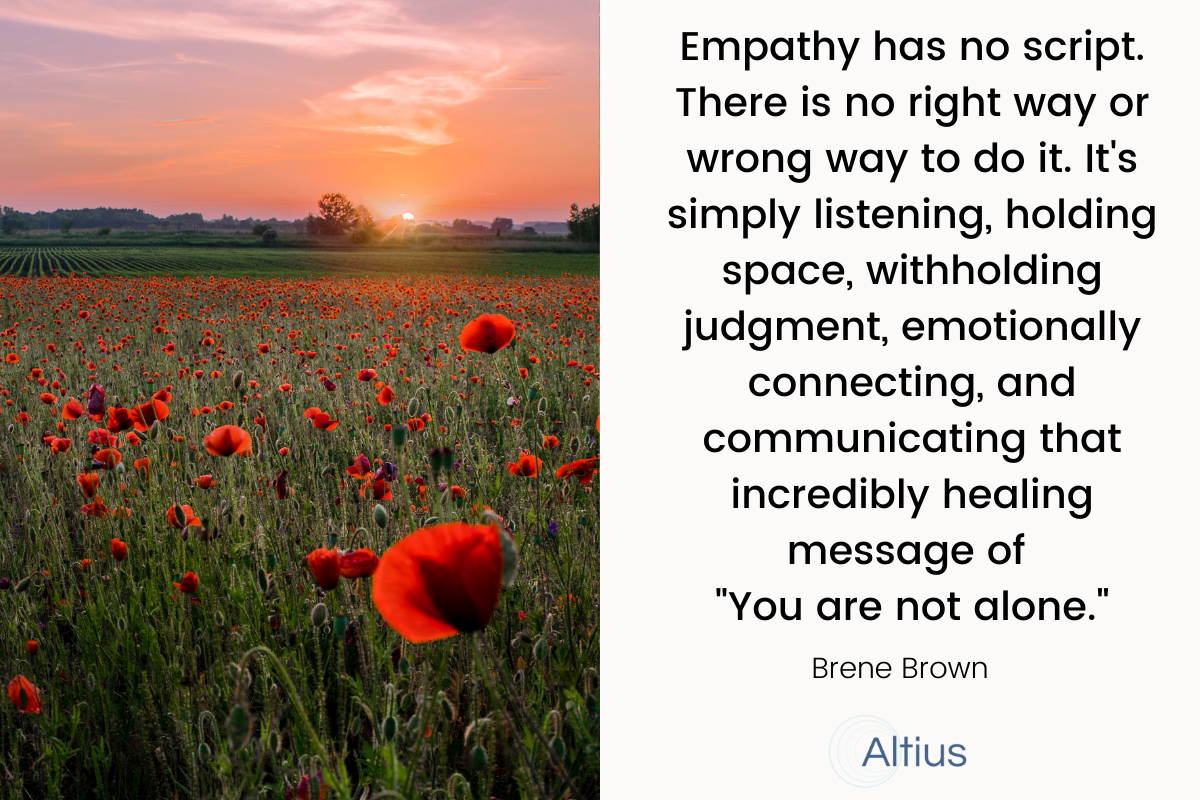AN EMOTIONAL HIJACKING
& An Empathy MissJust let me feel what I feel. Don’t pressure me to feel better!
A few weeks ago, I discovered that my biological father passed away. I discovered that he died last spring. I am not sure what was the cause of his death.
His obituary didn’t mention children. I had never met him. I just knew his name and where he lived (Minneapolis, where I was born). Several years ago, I sent him a letter requesting a medical history, but he never replied. About two years ago, I wrote him again. Crickets. In my letters, I included stories and photos of myself and my family. I wanted to respect his privacy, so I decided to leave him alone. I occasionally imagined stalking him, just so I could see what he looked like, but I don’t live near Minneapolis. It certainly would not have been worth making a separate trip.
AN EMOTIONAL HIJACKING
As I read the obituary of my birth father, a weird mix of emotions washed over me. I texted one of my best friends, “Um my biological father died in May. What a weird mix of emotions I feel for someone I never met and who refused to respond to me. Whether or not it makes any sense, there was a place in my heart for him.” My friend (who I love with my whole heart and who loves me) responded, “It’s just too bad you didn’t get to ask questions. But honestly how many people have parents around them and still don’t ‘know’ them. You know?”
I was so pissed off at her response. I was pissed off at her. I wanted to punch something. I started to swear and vigorously slammed a pillow into the couch. I wasn’t sure what was happening at first. I just knew I was so emotional. I finally figured out that the story I told myself was that my friend didn’t think my emotions were merited, that my situation was not that bad. That the people who never “knew” their parents had it worse. As a result, I felt defensive and ashamed. I disconnected from her emotionally and didn’t respond to her text until later that evening.
WHAT WOULD HAVE BEEN HELPFUL
Now, I knew it was true that my situation was not that bad, especially when compared to people who have endured excruciating heartbreak and pain. All I really wanted in that moment was a simple acknowledgment, a response like, “Aww, that sucks, I’m sorry,” or “It makes sense that you would have a weird mix of feelings,” or “It must have been so strange to see that up on your screen.” Then, after a few minutes, the wave of emotions would have passed and logic would have kicked in. I would have learned that I did care a little about him (something I had denied for years), and I would have moved forward. It would have been a tender moment, and I would have felt closer to my friend as a result. But that’s now how it went.
To be clear, I know my friend was trying to be loving. She talked to me the same way she talks to herself. (She’s a tough cookie and is to be hard on herself and others.) I have no hard feelings toward her at all.
BRAVING CONNECTION
It always feels vulnerable for me to admit how sensitive I am, but I know I am not alone. I share this story to normalize sensitivity and to give perspective to people who struggle to connect with others. I believe so many people, like my friend, have the best intentions, but they often miss opportunities for empathy and connection. For a variety of reasons, they try to make other people feel better, when really, it would be braver and most helpful to just listen and let people feel what they feel. Trying to make them feel better suggests that their emotion is not okay. It’s judgment, which leads to shame. Instead, simply listen, extend a hand, or offer a shoulder for tears. Be present with that person and let them tell you their story. Ask questions to understand more. The coolest part is that when you bravely give someone space to feel their emotions, that is the most effective way to make them feel better.

Let’s Connect
Join me in your leadership journey to become a brave leader with breakthrough results. I invite you to sign up for my newsletter to be alerted to new Dare to Lead™ programming or schedule your first consultation below.
Let’s Connect
Your first consultation is free. Share your leadership challenge below.

Recent Comments